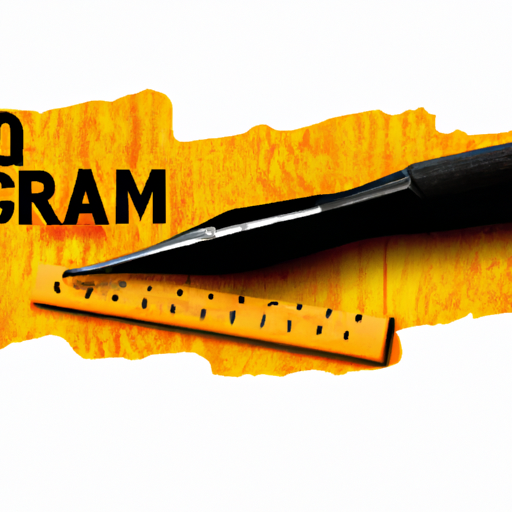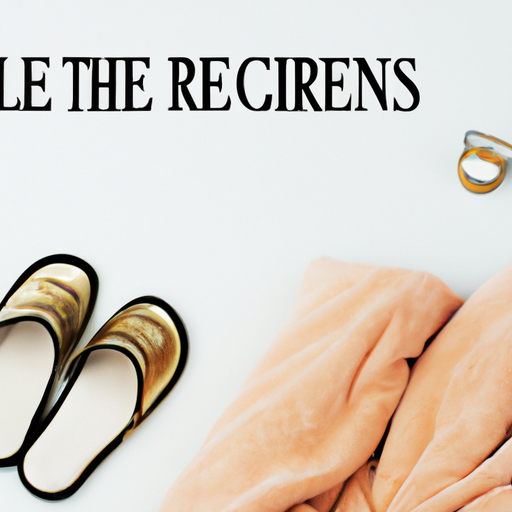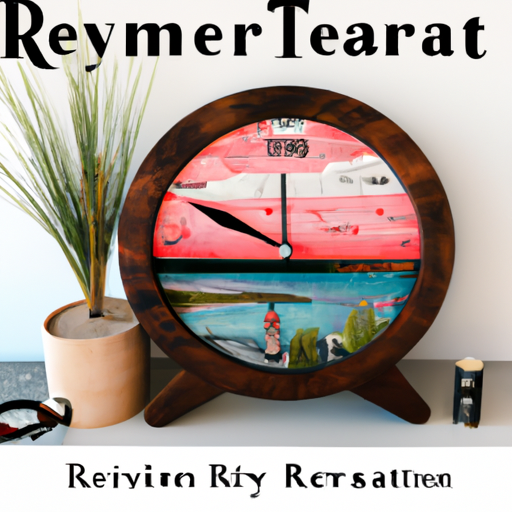If you’re in the market for a unique and personalized gift, look no further than custom engraved clocks. From wood to glass, these clocks offer a sophisticated and timeless appeal that is sure to impress. Whether you’re seeking a rustic aesthetic or a sleek modern design, there are a range of top materials available to suit any style. In this article, we’ll explore the most popular materials for custom engraved clocks and discover how they can add a touch of elegance to any space.

Wood
Wood is a timeless and versatile material that has been used for centuries in various applications, including furniture, construction, and crafts. There are several types of wood commonly used in the production of custom engraved clocks.
Types of Wood
- Oak: Known for its strength and durability, oak is a popular choice for clock-making. It is resistant to warping and has a beautiful grain pattern that adds a touch of elegance to any design.
- Walnut: Walnut is prized for its rich and dark color, making it a popular choice for creating clocks with a vintage or antique aesthetic. It is also known for its stability and resistance to decay.
- Maple: Maple wood has a light and uniform appearance, making it a versatile option for clock-making. It can be easily stained or painted to match any interior decor.
- Cherry: Cherry wood is known for its warm reddish-brown hue and distinctive grain pattern. It ages beautifully over time, giving clocks made from cherry wood a classic and sophisticated look.
Advantages of Wood
- Natural Beauty: Wood has a unique and warm aesthetic that adds character to any space. The natural grain patterns and variations make each piece of wood unique, creating a sense of authenticity and charm.
- Durability: Many types of wood used in clock-making are known for their durability and longevity. When properly cared for, wooden clocks can last for generations, making them a great investment.
- Customization: Wood can be easily carved, shaped, and engraved, allowing for endless design possibilities. Whether you prefer a minimalist and modern look or a more intricate and detailed design, wood can be tailored to your specific taste and style.
Disadvantages of Wood
- Susceptible to Moisture and Temperature Changes: Wood is sensitive to changes in humidity and temperature, which can cause it to expand, contract, or warp over time. Proper care and maintenance, such as keeping the clock in a stable environment, can help mitigate these issues.
- Prone to Scratches and Dents: While wood is generally durable, it is not completely immune to scratches and dents. Regular maintenance, such as polishing and applying protective coatings, can help minimize these signs of wear and tear.
Metal
Metal is a versatile material that offers a sleek and modern aesthetic for custom engraved clocks. There are various types of metals commonly used in clock-making, each with its own unique qualities and characteristics.
Types of Metal
- Stainless Steel: Stainless steel is a popular choice for modern clocks due to its durability, corrosion resistance, and low maintenance requirements. It has a sleek and polished appearance that adds a touch of elegance to any space.
- Brass: Brass is a timeless and luxurious metal that is often used in traditional and vintage-style clocks. It has a warm and lustrous golden hue that can deepen and develop a unique patina over time.
- Aluminum: Aluminum is lightweight, durable, and resistant to corrosion, making it a practical choice for clocks. It can be anodized or painted in various colors to create a vibrant and eye-catching design.
- Copper: Copper has a distinct reddish-brown hue and offers a rustic and earthy aesthetic. Clocks made from copper can develop a beautiful patina over time, adding character and charm to the piece.
Advantages of Metal
- Modern and Sleek Design: Metal clocks often have a contemporary and sophisticated look, making them suitable for modern or minimalist interiors. The clean lines and polished finishes can create a focal point in any space.
- Durability: Metals such as stainless steel and aluminum are highly resistant to scratches, dents, and other signs of wear and tear. This makes metal clocks ideal for high-traffic areas or commercial settings.
- Versatility: Metal can be easily manipulated and shaped into various designs, allowing for intricate and detailed engravings. It offers flexibility in terms of both form and function, making it suitable for a wide range of styles.
Disadvantages of Metal
- Vulnerable to Fingerprints and Smudges: Metal surfaces can show fingerprints, smudges, and other marks easily, requiring regular cleaning and maintenance to keep them looking polished and pristine.
- Cold and Industrial Appearance: While some may appreciate the sleek and modern look of metal clocks, others may find them too cold or impersonal. It’s important to consider the overall aesthetic and ambiance of the space when choosing a metal clock.
Acrylic
Acrylic is a lightweight and transparent material that is commonly used in the production of custom engraved clocks. It offers unique advantages and disadvantages that make it a popular choice for certain design preferences.
Advantages of Acrylic
- Clear and Transparent: Acrylic has a high level of transparency, allowing for clear visibility of the clock mechanism and dial. This can create a modern and minimalist look, making acrylic clocks suitable for contemporary interiors.
- Lightweight: Acrylic clocks are lightweight, making them easy to hang or display. This can be advantageous when it comes to installation or if you plan to frequently move or rearrange your clocks.
- Versatile Design Possibilities: Acrylic can be easily molded and shaped into various forms, making it a versatile option for custom engraved clocks. It can be engraved with intricate designs or texts, offering endless customization possibilities.
Disadvantages of Acrylic
- Prone to Scratches: Acrylic is not as durable as some other materials, and it can be prone to scratches if not properly cared for. It is important to handle acrylic clocks with care and avoid using abrasive materials when cleaning.
- Susceptible to UV Damage: Over time, acrylic may yellow or become discolored when exposed to prolonged sunlight or harsh UV rays. To prevent this, it is recommended to place acrylic clocks away from direct sunlight or use UV-resistant acrylic.

Glass
Glass is a popular material choice for custom engraved clocks due to its elegance and timeless appeal. It offers a unique aesthetic and provides distinct advantages and disadvantages.
Advantages of Glass
- Timeless Elegance: Glass clocks exude sophistication and elegance, making them suitable for both traditional and contemporary interiors. The transparency of glass adds a touch of ethereal beauty to any space.
- Versatility in Design: Glass can be crafted into various shapes and sizes, allowing for creative and unique clock designs. Whether you prefer a minimalist and sleek look or a more ornate and intricate design, glass can accommodate different styles.
- Durability: While glass may seem delicate, it is surprisingly durable. It is resistant to scratches and dents, ensuring that the clock remains in good condition for years to come.
Disadvantages of Glass
- Fragility: Glass clocks can be fragile, especially if they are not made from tempered or shatter-resistant glass. It is important to handle glass clocks with care to avoid any accidental damage.
- Reflective Surfaces: Depending on the lighting conditions and placement of the clock, the reflective nature of glass can sometimes create unwanted glare or reflections. This can affect the visibility of the clock dial, particularly in brightly lit areas.
Stone
Stone clocks offer a unique and natural aesthetic that brings a touch of the outdoors into any interior. There are various types of stones commonly used in clock-making, each with its own distinct qualities and characteristics.
Types of Stone
- Granite: Granite is a popular choice for stone clocks due to its durability and resistance to scratches and stains. It has a unique and eye-catching grain pattern that can vary depending on its mineral composition.
- Slate: Slate is known for its dark color and smooth texture, making it a suitable option for creating sleek and modern stone clocks. It can be easily engraved to add a personalized touch.
- Marble: Marble is a luxurious and timeless material often used in high-end clocks. It is known for its distinctive veining patterns and comes in a variety of colors, ranging from pure white to deep black.
Advantages of Stone
- Natural Beauty: Stone clocks offer a unique and organic beauty. The natural colors, patterns, and textures of the stone can create a focal point in any space and add a touch of elegance.
- Durability: Stone is highly durable and resistant to scratches and stains, making stone clocks ideal for high-traffic areas or outdoor settings. Stone clocks can withstand the test of time and require minimal maintenance.
Disadvantages of Stone
- Heavy and Bulky: Stone clocks can be heavy and cumbersome, making them more challenging to install or move. It is important to consider the weight of the clock when choosing its placement.
- Limited Customization: While stone can be engraved, the level of detail and intricacy may be limited compared to other materials like wood or acrylic. Stone is less malleable, which can restrict the design possibilities.
Marble
Marble is a luxurious and timeless material commonly used in the production of custom engraved clocks. It offers unique advantages that make it a popular choice for those seeking elegance and sophistication.
Advantages of Marble
- Luxurious Aesthetic: Marble has been associated with luxury and opulence for centuries. Clocks made from marble exude a sense of grandeur, making them a focal point in any space.
- Distinctive Veining Patterns: Each piece of marble has a unique veining pattern, resulting in a one-of-a-kind clock. Whether you prefer subtle or bold patterns, marble clocks offer a natural and organic aesthetic.
Disadvantages of Marble
- Fragile: Marble clocks can be fragile and prone to cracking or chipping if mishandled. It requires extra care during installation and maintenance to prevent any accidental damage.
- Susceptible to Stains and Etching: Marble is a porous material that can be susceptible to stains if not properly sealed. It is also prone to etching when exposed to acidic substances, so it is important to avoid contact with such substances.
Plastic
Plastic is a versatile and affordable material commonly used in the production of custom engraved clocks. It offers several advantages and disadvantages, making it suitable for certain applications.
Advantages of Plastic
- Affordability: Plastic clocks are often more budget-friendly compared to clocks made from other materials. This makes them accessible to a wider range of individuals who may be looking for a more cost-effective option.
- Lightweight: Plastic clocks are lightweight, making them easy to handle, hang, or display. This can be advantageous if you plan to frequently move or rearrange your clocks.
Disadvantages of Plastic
- Durability: While plastic clocks can be durable and long-lasting, they are generally not as robust as clocks made from materials like wood or metal. They can be more prone to scratches, fading, and other signs of wear and tear.
- Less Aesthetic Appeal: Plastic clocks may not offer the same level of sophistication or elegance as clocks made from other materials. They often have a more casual or utilitarian appearance, which may not suit certain design preferences.
Ceramic
Ceramic clocks offer a unique and artistic aesthetic, making them a popular choice for those looking for a distinctive piece. There are various types of ceramics commonly used in clock-making, each with its own characteristics and qualities.
Advantages of Ceramic
- Artistic Design: Ceramic clocks often feature intricate and artistic designs, making them a statement piece in any interior. The versatility of ceramic allows for detailed engravings or handcrafted elements, adding a touch of uniqueness.
- Durability: Ceramic clocks are known for their durability and resistance to scratches and fading. With proper care, ceramic clocks can maintain their beauty for years to come.
Disadvantages of Ceramic
- Fragility: Ceramic clocks can be fragile and prone to chipping or cracking if handled roughly. They require extra care during installation and everyday use to avoid any accidental damage.
- Limited Color Range: Ceramics offer a beautiful range of colors, but compared to other materials like acrylic or metal, the color options may be more limited. This can restrict the customization possibilities for those seeking specific color schemes.
Bamboo
Bamboo is a sustainable and eco-friendly material that has gained popularity in recent years for its unique qualities. Clocks made from bamboo offer a natural and organic aesthetic while being environmentally conscious.
Advantages of Bamboo
- Sustainable and Renewable: Bamboo is one of the fastest-growing plants on Earth and can be harvested without causing any harm to the environment. This makes it a more eco-friendly option compared to other materials.
- Warm and Natural Appearance: Bamboo clocks have a warm and natural appearance that can add a touch of serenity and tranquility to any space. The light color and grain patterns of bamboo create a soothing ambiance.
Disadvantages of Bamboo
- Susceptible to Moisture and Humidity: Bamboo is a natural material that can be sensitive to changes in moisture and humidity. It is important to keep bamboo clocks in a stable environment to prevent warping or damage.
- Limited Customization Options: Bamboo clocks may have more limited customization options compared to other materials. While bamboo can be engraved or stained, it may not offer the same level of design possibilities as materials like wood or metal.
Conclusion
Choosing the right material for a custom engraved clock is a decision that depends on personal taste, design preferences, and the desired ambiance of the space. Each material discussed in this article offers its own unique advantages and disadvantages.
Wood provides a timeless and versatile option, offering natural beauty and durability. Metal, on the other hand, offers a modern and sleek design with its various types and finishes. Acrylic provides a lightweight and transparent option, while glass offers timeless elegance. Stone and marble bring a touch of nature into the interior, with each type of stone offering its own distinct characteristics. Plastic clocks are affordable and lightweight, while ceramic clocks offer artistic and intricate designs. Lastly, bamboo clocks provide a sustainable and eco-friendly option with their warm and natural appearance.
By considering the advantages and disadvantages of each material, you can make an informed decision and choose the perfect material for your own custom engraved clock. Whether you prefer the warmth and character of wood or the sleekness of metal, there is a material out there that will suit your style and enhance the beauty of your space.



